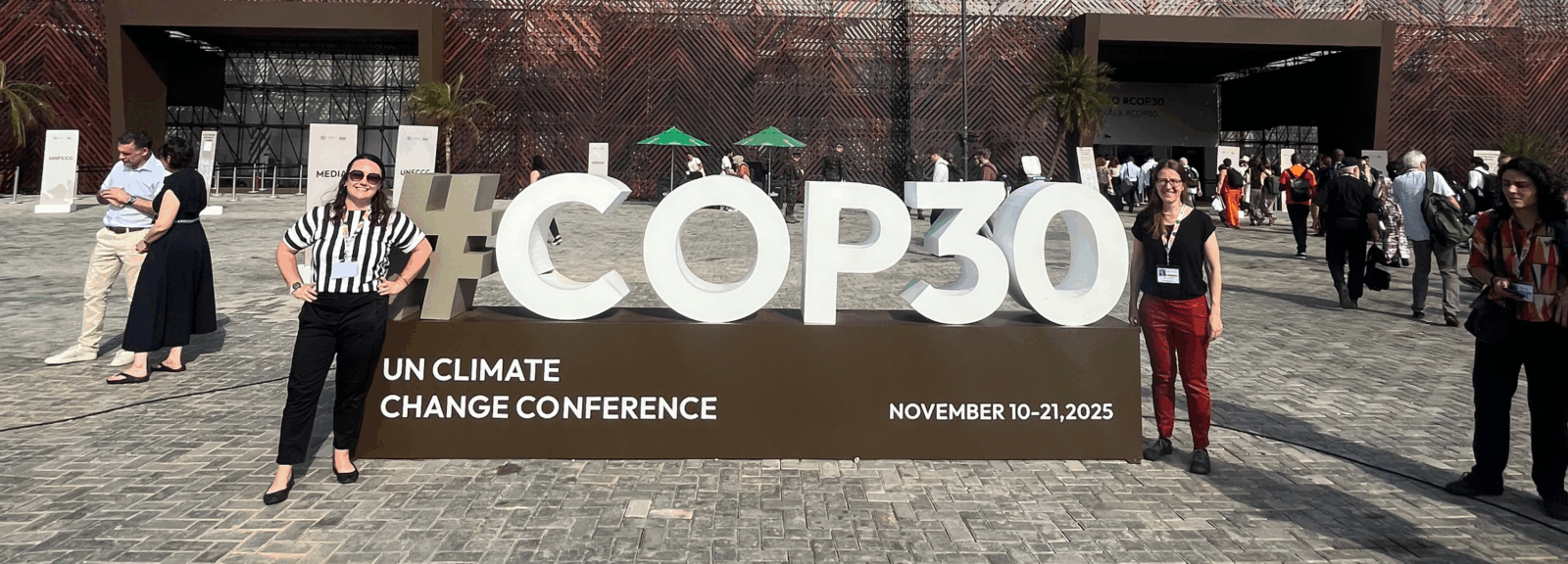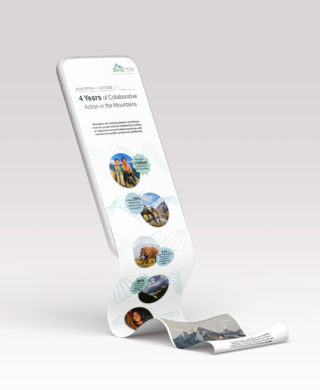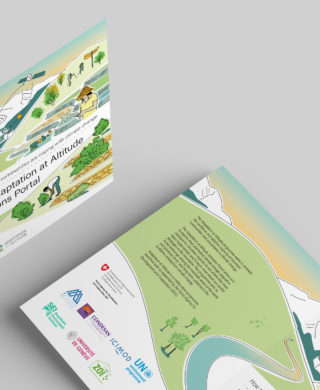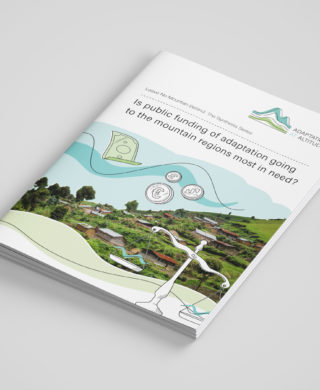
Zoï at COP30: elevating mountains in the global climate agenda
26.11.2025
Zoïs Johanna and Alex traveled to Belém, Brazil, for the UNFCCC COP30 in November 2025. Their main goal: mainstreaming mountains into key UNFCCC processes under the Adaptation at Altitude programme (A@A) and collaborating with other stakeholders sharing the same goal.
Zoï’s engagement with COPs has varied over the years, typically traveling there for work on climate-related projects to launch reports, host side events, or participate in relevant dialogues. While not typically participating in negotiations directly, Zoï also provides inputs like white papers on various COP agenda items to different Parties or creates outreach summaries post-facto.
The Brazilian presidency of COP30 in the Amazonia adopted the word “Mutirão” as its official slogan; a word of Indigenous origin that means collective work and captures one of the main challenges of our times: fighting the climate crisis together. At COP30, our mission as part of this global collective effort was clear – sharing that mountains matter and elevating the mountain agenda in the UNFCCC process.
Ahead of the COP, Zoï supported the Swiss delegation with the development of a white paper focused on the Global Goal on Adaptation indicators, how these could be made relevant for mountain areas, and what steps could be taken during the conference.
Throughout 2025, Zoï coordinated seven organizations for the development of a policy brief on the biodiversity-climate change linkages in mountain areas, and how this can be mainstreamed into the UNFCCC and CBD processes. This brief shared key recommendations from dialogue with different regional mountain platforms, recognizing the importance of stakeholder buy-in and taking different perspectives into account.
Building on this policy brief, Zoï organized an Official COP30 Side Event on the same topic, which was co-sponsored by Consorcio para el Desarrollo Sostenible de la Ecorregión Andina (CONDESAN) and the governments of Bhutan and Nepal. Other A@A partners (The International Centre for Integrated Mountain Development (ICIMOD) and the United Nations Environment Programme (UNEP)) helped co-organize the event and brought in key speakers.
The side event consisted of a high-level panel with country representatives from Nepal, Bhutan, Armenia, Kyrgyzstan, and Peru, followed by a presentation of the policy brief and a roundtable dialogue with CONDESAN, ICIMOD, FAO Mountain Partnership Secretariat, UNEP, and the Development Bank of Latin America and the Caribbean (CAF), where participants could provide commentary on the brief, how we can take it forward, and their priority areas on climate and biodiversity.
Zoï engagement extended further to collaboration with the International Cryosphere Climate Initiative at the Cryosphere Pavilion. Solutions for adaptation in mountain areas were on prominent display at the pavilion, and Zoï organized a side event on cryosphere solutions for mountain areas around the world. The event featured a presentation of an effectiveness evaluation from solutions in the Andes, as well as a panel of representatives from Wetlands International LAC, ICIMOD, and CONDESAN to share inputs on what makes solutions effective.
Longstanding collaboration with the Inter-Parliamentary Union also led to participation in their Parliamentary Meeting hosted at the Legislative Assembly of Belém, where Alex was invited to moderate the session on adaptation. This allowed Zoï to shape the conversation and bring up mountain issues once more, and gave the chance to promote our issue brief for parliamentarians.
But Zoï wasn’t the only organization pushing for the mountain agenda. We casually dubbed 14 November as “Mountain Day” after hearing about four back-to-back official side events on mountain issues and the introduction of a COP Presidency Consultation on mountain and climate change. Countries and civil society used this opportunity to raise the issue of a lack of space for dialogue on mountains, and discuss further pathways that could be useful in the future.
Recognizing the work we still have ahead of us, we left Belém with the feeling that COP30 was a productive conference for Zoï, giving us the chance to connect different partners and raise awareness of mountain issues in specific agenda points of the negotiations.



